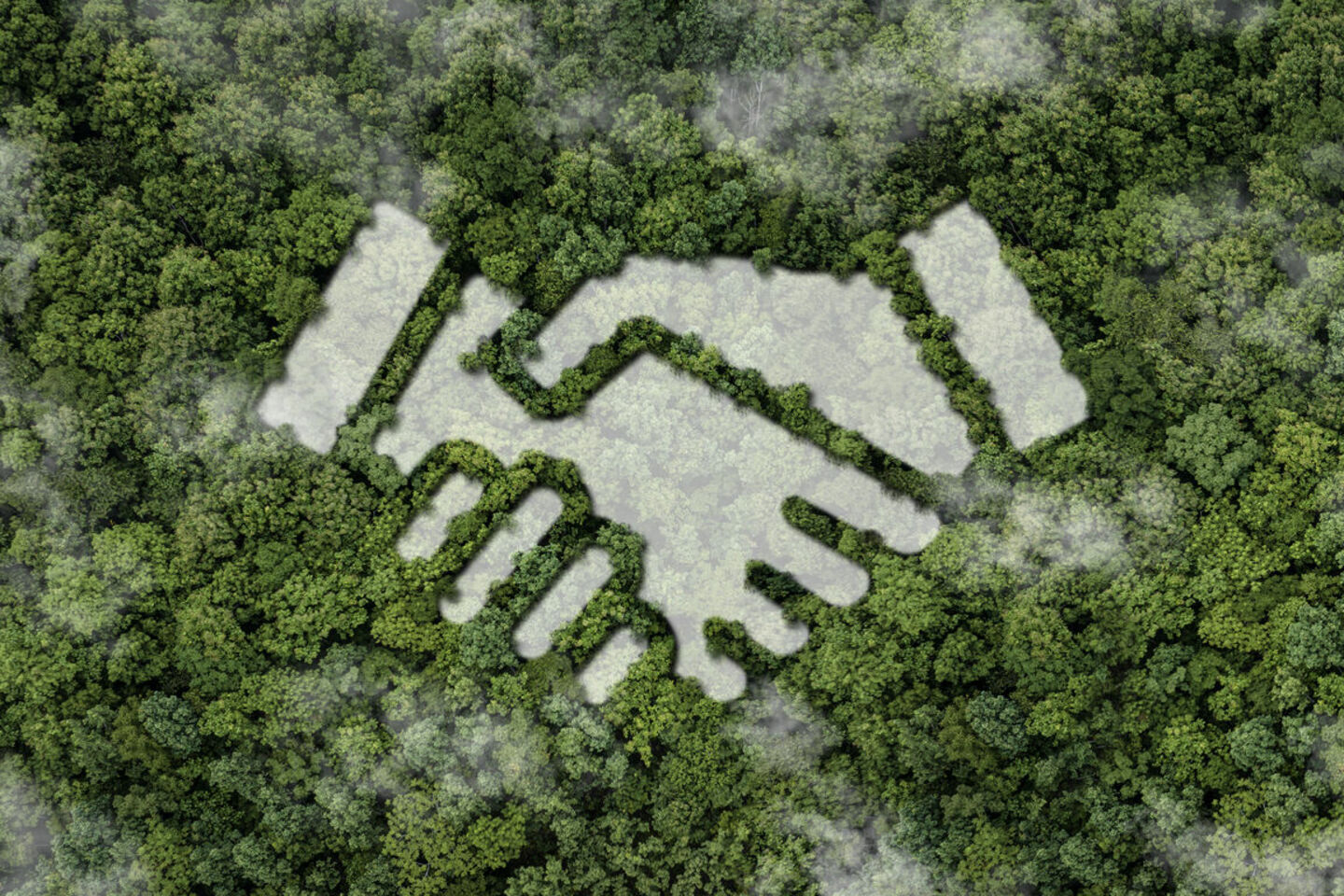
4TU.Energy: promoting energy transition by joining forces
During the Community day, the network organization discussed energy research and its funding
4TU.Energy, a network organization made up of the four technical universities in the field of energy, convened in Amersfoort last week for the Community day. An excellent opportunity to network and share knowledge, but also to welcome new members and introduce them to the energy landscape. This year’s central question was: where do I get funding for my research?
4TU is a partnership between the four technical universities of the Netherlands – TU Delft, Wageningen University & Research (WUR), University of Twente (UT) and TU/e. Within this federation, there are ten centers, each with a specific focus area; 4TU.Energy is one of them, but there is also a center for ICT and one revolving around the theme of resilience, for example. “They’re all network organizations, they don’t have a formal status and are not physically based anywhere,” says David Smeulders, TU/e professor of Energy Technology and scientific director of 4TU.Energy.
With a total budget of around 150 thousand euros per year, which the ten centers receive from the Executive Boards of the four participating institutions, they organize activities to promote cooperation. The primary goal of these network organizations is to create an ecosystem where people can easily get in touch with each other, but also to offer joint education or, at the very least, keep each other updated on the educational programs. The main target audience is the employees and students of the universities, Smeulders emphasizes. “That’s who we’re doing it for.”
Connect, Coordinate, Collaborate and Create
He pulls out a sheet of paper listing 4TU.Energy’s objectives: Connect, Coordinate, Collaborate and Create. “One of the things we do is organize the annual Community day,” says Smeulders. The main goal is to introduce new people – assistant professors, associate professors, PhD candidates and postdocs who have just been appointed – to the Dutch energy landscape. “They’re often from abroad, so they don’t even know their own organization that well yet.” During this networking event, they can get to know each other personally and learn about the various projects and opportunities to work together through presentations.
One of the important themes 4TU.Energy focuses on – which is also the main theme of this year’s Community day – is: how do I get my research funded? Through the program, the organizers want to make participants aware of the possibilities and provide practical tools. For example, Mark Boneschanscher, the managing director of EIRES (TU/e institute for renewable energy), was asked to deliver a presentation on the funding of scientific research. “Mark has worked at the Netherlands Organisation for Scientific Research (NWO), so he is well acquainted with the funding landscape,” says Smeulders. “He will explain where to get funding. And how you might set something up together with a colleague.”
Rapid research funding
“As the 4TU community, we have also set some money aside for funding,” he continues. “This is to ensure that there is a sense of community. So, for example, if someone wants to host a symposium on heat to bring people together, that’s possible.” But there are other possibilities as well. “Suppose you have an excellent candidate for a PhD or postdoc position, but you don’t have the funds at the moment because the contracts haven’t been signed yet or you’re waiting for a subsidy. In that case, you can apply to us for a sort of bridge financing, rapid funding for the first few months,” he explains. Thanks to this rapid research funding, you can retain talented people and avoid losing them to industry.
But the budget can also be used to stimulate collaboration between the centers themselves; for example, 4TU.Energy works together with 4TU.NIRICT, the center for ICT, because there is overlap between energy and information technology. “Think of electricity networks that depend on computer systems to optimize processes and ensure that network capacity is properly distributed,” says Smeulders.
He emphasizes how valuable the 4TU collaboration in energy is. “If it weren’t for the federation, we’d be starting at a disadvantage,” he argues. “All the research, education and social development related to the energy transition can only be realized if you include all parties from the very beginning and leverage each other’s strengths.”
Fully booked
In order to stimulate this successful collaboration, 4TU.Energy is organizing a Community day, just like last year. This attracts some sixty to seventy people to Amersfoort on a rainy Tuesday morning in mid-April: from PhD candidates to professors and from familiar faces greeting each other enthusiastically to newcomers quietly looking around or trying to strike up a first conversation with others. Not only is the event fully booked; the organizers even had to arrange extra chairs to be able to accommodate everyone. After a word of welcome by David Smeulders, the morning program begins, consisting of research presentations meant to give attendees a broad research overview.
Tarek Alskaif, assistant professor of Energy Informatics at WUR, talks about the role ICT can play in facilitating the energy transition. The intermittent nature of renewable energy – the fact that its production is not entirely predictable or controllable – poses a major challenge for which ICT can provide solutions. For example, information technologies can increase the flexibility of our energy infrastructure and lead to a better match between supply and demand.
Henny Romijn, associate professor of Technology & International Sustainable Development at TU/e, presents the 4TU Alliance on Energy Access, which she is part of. This part of 4TU.Energy focuses on SDG7, one of the Sustainable Development Goals of the United Nations which states: ensure universal access to reliable, affordable, sustainable and modern energy by 2030. Despite major efforts and progress in this area, the reality is still dire: more than 700 million people do not have access to electricity and nearly 2.5 billion people do not have access to clean cooking, explains Romijn. With the alliance, the initiators try to create a platform for researchers to join forces. In addition, they support educational activities to involve the younger generation and participate in various social projects in developing countries where access to energy is a major concern.
Pitches
After lunch, the program continues with pitches of projects funded by the federation. Peyman Taheri, a TU Delft researcher, talks about an innovative technology that replicates the natural carbon cycle and captures CO2 from the air to use it for the production of something useful. In his research, he looks at how to convert CO2 into synthetic fuels through electrochemical processes by using so-called electrocatalyst materials.
TU/e researcher Maja Rücker demonstrates which techniques can be used to measure CO2 concentrations in seawater. Seawater contains about 140 times more dissolved CO2 than the air. With so-called IOC (Indirect Ocean Capture) technologies, CO2 can be extracted from the atmosphere by utilizing the exchange of gases between the air and ocean. Extracting CO2 from the seawater enables the seawater to absorb more CO2 from the atmosphere. To further implement the IOC technology at different locations, the water samples must be accurately analyzed in real time. Rücker’s research explores how to use CO2-responsive microgels to measure CO2 concentrations in seawater.
I want to give you brackets within which you can collaborate with each other, not necessarily with me
A marketplace for heat
One of the highlights of the day is the lively presentation by keynote speaker Kamel Hooman, professor of Heat Transformation Technology at TU Delft. The Australian kicks off by reiterating the role and objectives of 4TU. He emphasizes that he greatly values collaboration and selflessly aims at facilitating it. “I want to give you brackets within which you can collaborate with each other, not necessarily with me,” he tells the audience.
Next, he shares his vision of high-temperature heat that can be generated using different sources. He mentions power to heat, waste heat recovery, and solar thermal energy. He also shows examples, both from Australia and Europe, when electricity price falls negative. By converting surplus electricity that congests the grid to generate heat at high temperature, he argues, we can turn a potential threat into an opportunity.
He shows that about one-third of our energy in Europe is wasted as heat, a large part of it at high temperature. According to him, if we recover the waste heat in Germany and convert it to electricity, we would not need to burn coal in The Netherlands anymore. “Trash to treasure,” is how he describes this principle. What is trash to one person can be invaluable to another. He shares his dream: an international market for heat, like Marktplaats or eBay, where people and industries can share, sell or exchange heat.
Overlooked
The plenary part concludes with a presentation by Mark Boneschanscher of EIRES. The last-minute attendee from TU/e, who was late due to “discussions of important policy plans” taking place at TU/e, wants to guide the attending researchers through the jungle of science funding agencies. According to Boneschanscher, arranging funding is often an overlooked aspect of scientific research. During his presentation, it becomes painfully clear why. He shows the endless possibilities for securing funding, from internal to external sources and from local to international levels. Before long, the slides are filled with a large amount of information and attendees are bombarded with all the abbreviations of different agencies. Especially for newcomers, it seems like too much to remember.
It’s often only at the end of the meeting that people say: "We have five minutes left, shall we talk about funding?"
Fortunately, he also shares some concrete, directly applicable tips with the audience. “We’re very good at making scientific proposals. But it’s often only at the end of the meeting that people say: “We have five minutes left, shall we talk about funding? Do we actually have money for that?” He makes a case for reversing that, to talk about money first and then focus on research. Finally, he offers some words of encouragement to the somewhat overwhelmed participants. “Take good care of yourself. You will encounter a lot of disappointment, so create a solid support system around you and work on building sustainable relationships with your colleagues,” he stresses. “You’re here for a long run!” Smeulders sees this as a fitting moment to conclude his presentation and quickly agrees with him: “That’s exactly why we’re here today.”

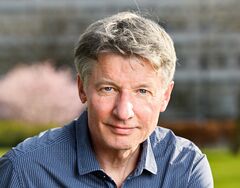
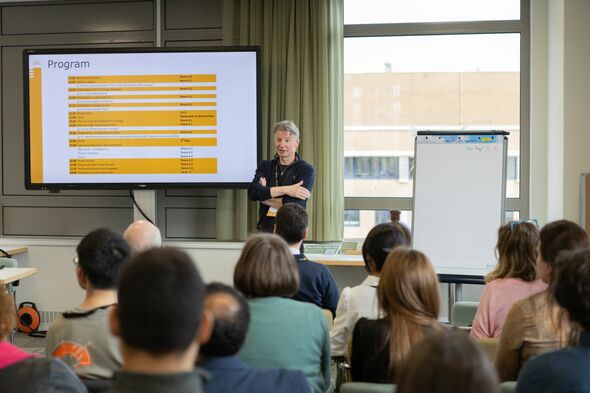
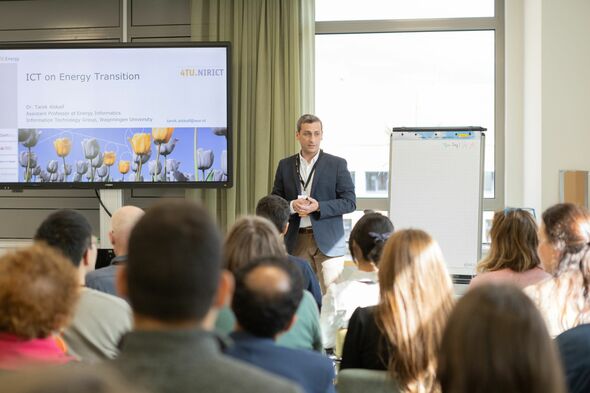
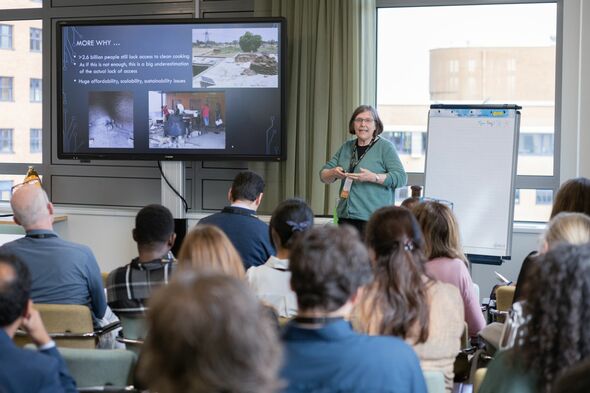
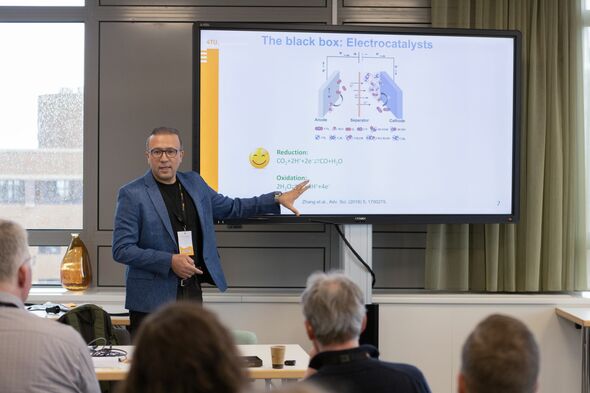
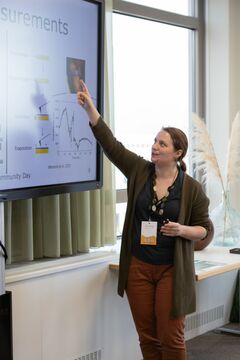
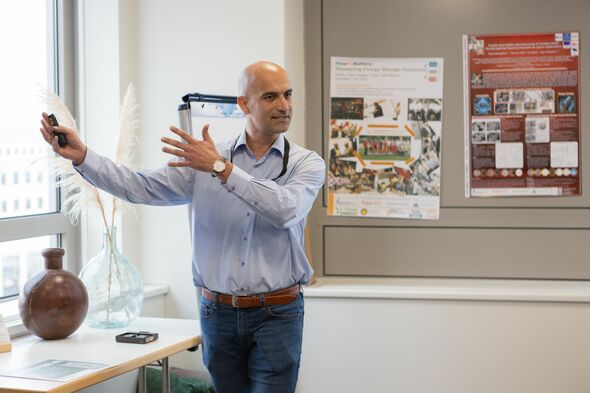
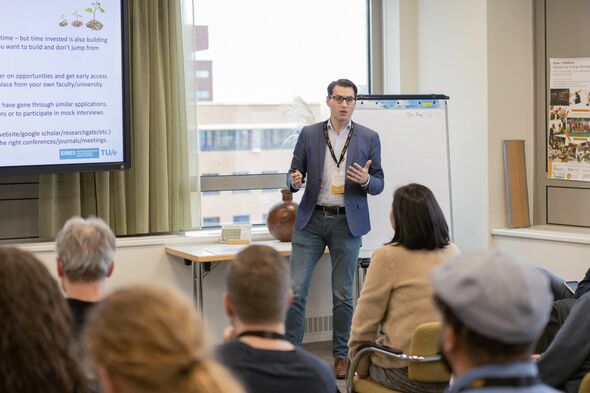
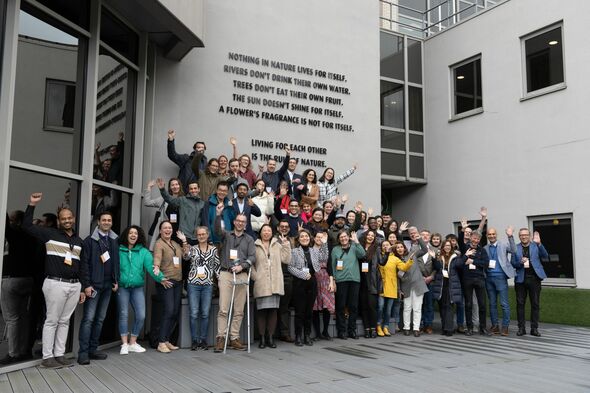
Discussion